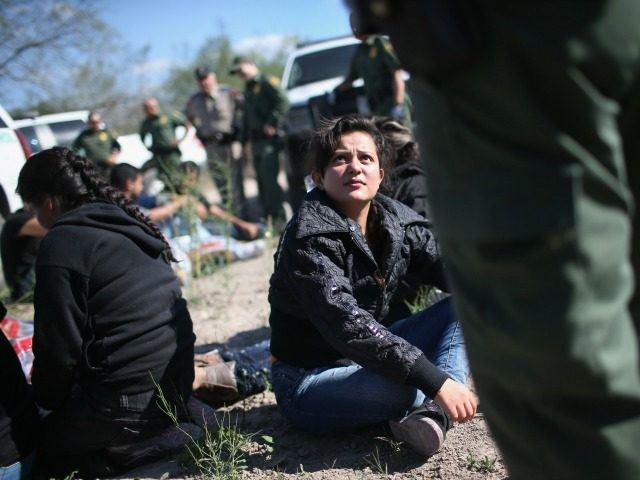An activist Princeton University professor is urging high schools to teach students how to advocate for immigration reform for illegal immigrants to the United States.
Dan-el Padilla Peralta, an assistant classics professor at Princeton, writes in an op-ed in the New York Times that he is pro-immigration reform and that high school students should be taught about how to fight for illegal immigrants in school. He also does not differentiate between legal and illegal immigration.
“Education in itself does not guarantee better prospects for reform,” he writes. “But at a minimum we must raise the level of the conversation by equipping students with the tools to critique and contextualize characterizations of immigrants on both sides of the partisan divide.”
However, Peralta appears disinterested in remaining non-partisan on the issue of immigration.
He urges those who wish to begin teaching about immigration reform to high school students to look to the College Board’s new AP U.S. History (APUSH) framework, which, he says, “offers considerable guidance on how to weave questions about past and modern-day migration into the curriculum.” He adds that the new framework “has unsurprisingly been derided in some circles as too ‘leftist’ in its treatment of the topic.”
The Princeton professor, author of the autobiographical Undocumented: A Dominican Boy’s Odyssey from a Homeless Shelter to the Ivy League, writes that while he thinks high school students should learn the nuts and bolts of how immigrants gain entry to the United States and obtain work visas, he urges that students also become familiar with the concept of immigration in the context of “America’s ideal democracy.”
He explains:
Is current immigrant law in harmony with commonly held notions of justice and fair treatment? How should liberal democracies decide whom to welcome and whom to exclude?
This kind of curriculum has never been more important because whatever happens this fall, Trumpism is here to stay. Those of us who are immigrants and or who advocate on behalf of immigrants face a twofold task. We will need not only to fight for immigration reform but to educate our fellow Americans on the intrinsic worth and merits of the immigrants who arrive here; the long history of immigration to the United States; the racialized targeting, mistreatment, and marginalization of immigrant groups; and the global history of immigration, with a particular emphasis on the pressures that drive immigrants across regional and national borders.
Two scholars who have warned about the leftwing perspective of immigration in the new APUSH framework are John Fonte, senior fellow and director of the Center for American Common Culture at the Hudson Institute in Washington, D.C., and Stanley Kurtz, senior fellow at the Ethics and Public Policy Center, also in Washington, D.C.
Fonte and Kurtz have written at National Review about the new APUSH framework’s bias:
The problem with the latest APUSH framework is that it variously downplays, omits, and distorts the significance of the assimilationist ethos in American history. Instead of conveying the nature and importance of assimilation, the College Board projects a contemporary multiculturalist perspective onto earlier eras. This does an injustice both to the facts and to a theme that rightly serves as a foundation for successful civic education: assimilation.
Immigration also featured prominently in the controversy over the 2014 APUSH framework. The background of that framework was an alliance between the College Board and a group of scholars committed to “end[ing] American history as we have known it” by substituting a more transnational narrative for the traditional account. The idea was to cultivate a sense of global citizenship in place of the more usual focus on national identity. Nothing could have been farther from the Founders’ intentions, or from the actual course of American history.
Reacting to Peralta’s op-ed, Kurtz tells Breitbart News, “It confirms everything I’ve been saying about the College Board’s political bias.”
He continues:
When John Fonte and I criticized the treatment of immigration in the new AP U.S. history framework, we explicitly said that the College Board had no business intervening on either side of our immigration disputes. All we called for was a full and honest presentation of all sides of the issue, as well as a fair account of America’s long tradition of immigrant assimilation. But Peralta openly calls on high school classes to back one side in our immigration disputes. He also wants to turn what’s supposed to be an American history curriculum into a course on global immigration. On top of that, he lavishes praise on the College Board’s AP program for advancing his political goals. It should be obvious to anyone that the College Board and the radical professors who support it are pushing a leftist political agenda. The AP U.S. history exam is hopelessly politicized. We have no choice but to work for an alternative.
Fonte reacts to Breitbart News by pointing to the contradiction inherent in Peralta’s statements:
Professor Padilla Peralta’s op-ed in the New York Times is blatantly contradictory. On the one hand, he states that it is important to equip high school students with “the tools to critique and contextualize characterizations of immigrants on both sides of the partisan divide.” On the other hand, Professor Peralta is openly partisan (“my hopes for immigration reform”) and claims to be a self-styled “advocate” for continuing mass immigration. Students should learn the history of immigration and not be taught to be partisan advocates for one side or the other, for either more or less immigration.
“The College Board’s AP US History framework that Professor Peralta endorses is, unfortunately, biased, as Dr. Stanley Kurtz and myself articulated in a long essay in National Review Online,” Fonte adds. “It appears that Professor Peralta’s idea of ‘education’ is, in truth, closer to propaganda, in which students are indoctrinated with the ‘correct’ political views.”

COMMENTS
Please let us know if you're having issues with commenting.